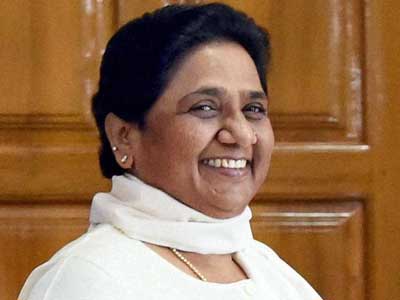Should the Bahujan Samaj Party merge with the Congress or Mayawati join the BJP's NDA bandwagon? Do small regional parties have any future? Can vote-cutting parties ever have the capacity to oust the BJP from power amidst intense polarization? These questions have become relevant in light of the results of several recent elections.
The current political scenario in Uttar Pradesh indicates that the Bahujan Samaj Party is unlikely to regain power on its own. The party’s steadily declining popularity has painted a complex picture.
Read in Hindi: अनिश्चितता के भंवर में फंसा है बसपा का भविष्य
Internal conflicts and contradictions have affected the BSP, leaving the party organization directionless. Party supremo Mayawati's reduced activity due to her age and health has become a hindrance to revival efforts.
According to political analyst Prof Paras Nath Chaudhary, "Currently, the rise of Chandrashekhar Azad in Dalit politics presents a new alternative. His charismatic leadership style and growing popularity among young voters have posed a fresh challenge to the BSP. Azad’s strategies and commitment to social justice have made him a hero in the eyes of the Dalit community. In such a scenario, the BSP’s return to power, especially amidst Chandrashekhar Azad’s growing influence, seems unlikely. The challenges for the BSP remain intact in the current landscape."
Mayawati, the leader of the Bahujan Samaj Party and a four-time Chief Minister of Uttar Pradesh, has made unsuccessful attempts to regain her political strength in recent years. However, given the recent election results and the party’s performance, many questions have arisen about her future. Political commentator Mithlesh Jha believes that Mayawati’s era has ended with a grand finale.
It is worth remembering that "In 2007, the BSP achieved an absolute majority in Uttar Pradesh, marking the peak of Mayawati’s career. But subsequently, in the 2014 Lok Sabha elections, the BSP did not win a single seat, and in the 2017 Assembly elections, it secured only 19 seats. In the 2022 Assembly elections, the party won just one seat with a vote share of 12.83 per cent. Recently, in the 2024 by-elections, its performance weakened further with a vote share of seven per cent," explains sociologist TP Srivastava.
Mayawati initially gave her nephew Akash Anand significant responsibilities in the party, only to later remove him. This indecision and the image of nepotism have affected her credibility. The absence of a second line of leadership has left the BSP at a crossroads, with the supremo caught in a dilemma. Questions are being raised about who will preserve Mayawati’s legacy.
Mayawati’s political future is ‘uncertain’. Her success will depend on whether she can adapt her old strategies to the new times. If she can strengthen the Dalit-Muslim alliance and activate the organization at the grassroots level, her comeback is possible. But currently, her party appears to be on the margins.
Twenty years ago, in the early 2000s, Mayawati’s Dalit vote bank, especially the Jatav community, was her greatest strength, but now that grip is loosening.
According to political observer Dr Vidya Chaudhary, "The Bahujan movement initiated by Kanshi Ram was carried forward by Mayawati, uniting Dalits and bringing them to power. But now the situation has changed. Earlier, the BSP received almost uniform support from Dalits, about 20 per cent of the population, in UP. In 2007, her social engineering i.e. Dalit + Brahmin + Muslim, garnered over 30 per cent of the votes. But now, the BJP, SP, and new Dalit leaders have made inroads into this vote bank. The seven per cent vote share in the 2024 by-elections shows that even her core vote is slipping."
The BJP has attracted non-Jatav Dalits i.e. Pasi, Kori, Valmiki, etc., through welfare schemes, like Ujjwala and PM Awas, as well as the Hindutva agenda. In 2017, the BJP won 70 out of 84 reserved seats, highlighting the BSP’s weakness.
Some experts say that the Jatav vote, which was Mayawati’s stronghold in western Uttar Pradesh, is now shifting. Additionally, increased education and awareness among Dalits have changed their aspirations, and they no longer want to remain tied to a single party.
In the 2019 Lok Sabha elections, the SP-BSP alliance garnered 19.3 per cent of the votes, and the BSP won 10 seats. But in 2022 alone, its vote share fell to 12.83 per cent. This indicates that its base is no longer as strong as it once was.
Mayawati’s political future currently appears weak, and her Dalit vote bank is no longer as united and strong as it used to be. Twenty years ago, she was the undisputed leader of Dalits, but changing political equations, the rise of new leaders, and the BJP’s strategies have loosened her grip.
















Related Items
How Bengal chose rhetoric, and Tamil Nadu opted for results…
How the winds of change reached a small shop…
Again, Congress embarrassed by leadership battle...